10 Things You Should Know About Copyright Infographic
- Subject:
- Cross-Curricular
- Material Type:
- Visual Media
- Provider:
- Virginia Internet Safety Advisory Council
- Provider Set:
- 2024
- Date Added:
- 03/15/2024
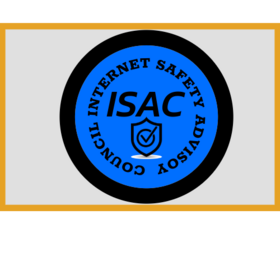
When planning, school leaders shall include digital citizenship into the school division’s broader goals, especially in the areas of the enforcement of copyright laws on written materials, photographs, music, and videos posted or shared online.
10 Things You Should Know About Copyright Infographic
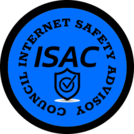
A FREE online platform created by AT&T in collaboration with Warner Bros. to help connect K-12 students to a new world of digital learning through stories that spark curiosity and content that entertains and teaches. Designed by education experts, The Achievery offers 7 subject-categories and over 500 videos, including clips from some of the most popular movies and shows, all paired with learning activities that can be accessed from everywhere they are - at home, in the classroom, and in their communities. Whether you are an educator looking for innovative ways to teach and plan your lessons, a parent or caregiver interested in finding additional resources for your children, or a motivated student in search of new challenges and opportunities to improve, you can find the best experience for you.
"This is an assembly-style personal safety
presentation for children in grades 3|4|5
featuring the NetSmartzKids characters.
Kids will learn about the four NetSmartz
rules with a live presenter who engages
them through discussion, quizzes and
animated videos."
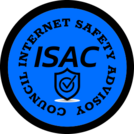
The Digital Citizenship+ (Plus) Resource Platform (DCPR) (previously called the Digital Literacy Resource Platform (DLRP)) is an evolving collection of learning experiences, visualizations, and other educational resources (collectively referred to as “tools”) designed and maintained by the Youth and Media team at the Berkman Klein Center for Internet & Society at Harvard University. You can you use the DCRP to learn about different areas of youth’s (ages 11-18) digitally connected life, including:
(1) Artificial Intelligence (AI), (2) Civic and Political Engagement, (3) Computational Thinking, (4) Content Production, (5) Context, (6) Data, (7) Digital Access, (8) Digital Economy, (9) Digital (Literacy), (10) Identity Exploration and Formation, (11) Information Quality, (12) Law, (13) Media (Literacy), (14) Positive/Respectful Behavior, (15) Privacy and Reputation, (16) Safety and Well-being, and (17) Security.
These tools aim to empower you with knowledge about connected learning environments and other parts of the digital world so you can make the choices that are right for you. If you are responsible for educating others, these tools can also support you as you teach, parent, or fill other valuable guidance roles. Our goal is to promote the co-creation of trustworthy and supportive digital spaces for all of us.
Free C&C resources include in-class lesson plans, plug-n-play slides, learning videos, visual aids, and a professional development course for teachers. They were developed on a nonprofit basis with input from independent educators, academic copyright experts, and online civil liberties advocates.
These materials aim to provide accessible and practical information about copyright – its protections, its limitations, and its role in encouraging creativity. Rather than just emphasizing what copyright prohibits, the goal here is to offer useful and positive information about what copyright allows and how students can successfully navigate and rely on copyright in their own roles as creators.
Checkology is a free e-learning platform with engaging, authoritative lessons on subjects like news media bias, misinformation, conspiratorial thinking and more.
Learners develop the ability to identify credible information, seek out reliable sources and apply critical thinking skills to separate fact-based content from falsehoods.
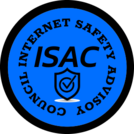
Use digital citizenship lesson plans to address timely topics and prepare students to take ownership of their digital lives. Browse lessons by grade and topic below, or see an overview of the curriculum.
We've got more new lessons! Explore all lesson plans or check our lesson collections!
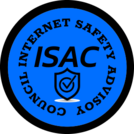
Use digital citizenship lesson plans to address timely topics and prepare students to take ownership of their digital lives. Browse lessons by grade and topic below, or see an overview of the curriculum.
We've got more new lessons! Explore all lesson plans or check our lesson collections!
Learn about what copyright does—and does not—cover in our Circulars. These guides provide detailed, up-to-date information to explain copyright to the public.
The Learning Engine series of videos introduces copyright concepts and the Copyright Office to those who may be new to the topic or who want to learn more. More videos will be added in the future here and to our YouTube channel. Subscribe to the channel to be notified when new videos are available.
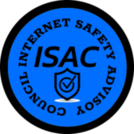
This is a quick guide for parents and educators that discusses he rules and tools for using a cellular device.
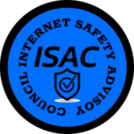
This is a quick guide for parents and educators to help understand social media and its effects on children.
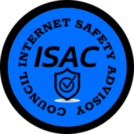
Teach and learn practical digital skills needed for the jobs of today and tomorrow with our video lessons that are free of charge.
To promote creative expression and help students understand the creative process of sharing and inspiration. To help students be fair with creative work.
To promote creative expression, help students understand ownership concepts associated with creative work and encourage students to think about how their work might be shared.
To promote creative expression and give students experience with the basic idea of copyright.
To introduce the concept of fair use.
To give students an experience that helps them understand the challenges and benefits of
respecting ownership and copyright, particularly in digital environments
To encourage students to respect artists’ rights as an important part of being an ethical digital citizen
To explore the concept of fair use
To help students understand how to interact with the creative work all around them.
To give students an experience identifying copyrighted works.
To introduce students to Creative Commons for finding creative work.
To encourage students to respect artists’ rights as an important part of being an ethical digital citizen.
Purpose:
To promote creative expression and give students experience understanding copyright protections and consequences.
To reinforce fair use concepts.